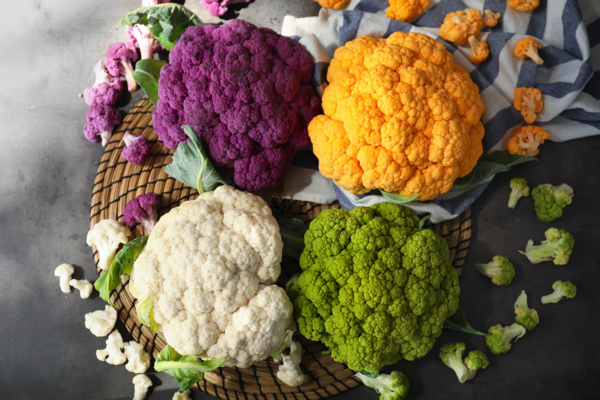
- Birch essential oil is derived from the young leaves, twigs and buds of the Betula pendula plant, a deciduous tree native to Northern Europe and parts of Asia, using steam distillation, which preserves its beneficial compounds.
- Historically, birch has been used in traditional medicine by the Russians, Finns and Native Americans to treat skin conditions, respiratory issues and rheumatic pain, highlighting its long-standing role in natural remedies.
- Birch essential oil is known for its anti-inflammatory and analgesic properties, which are due to the presence of salicylates, making it effective for conditions like arthritis and muscle pain. It also supports detoxification, skin health and respiratory health and can enhance mental and emotional well-being.
- Birch essential oil is commonly used in aromatherapy, massage oils and bath products. It is not typically taken orally but is applied topically after dilution or used in diffusers for inhalation.
- Birch oil can irritate sensitive skin and those with aspirin sensitivity should avoid it. It is recommended to perform a patch test and consult a healthcare provider before use, especially for pregnant or nursing women and individuals with chronic conditions or on medication.
Birch tree: a brief history of healing
Birch, scientifically known as Betula pendula, is a deciduous tree native to Northern Europe and parts of Asia. Commonly referred to as silver birch or European white birch, this tree is distinguished by its graceful, pendulous branches and silvery-white bark, which peels in papery layers. Birch essential oil is extracted from the young leaves, twigs and buds of the bitch tree through a process called steam distillation. This method preserves the volatile compounds that give the oil its therapeutic properties. Birch essential oil is a potent and versatile natural remedy with a long history of use in traditional medicine and aromatherapy. Historically, birch has been a revered plant in many cultures. In Russian and Finnish traditions, birch sap and leaves were used to treat skin conditions, respiratory issues and rheumatic pain. The Native Americans also utilized birch bark and sap for medicinal purposes, including making poultices for wounds and teas for internal ailments.Phytonutrients and health benefits
Brimming with bioactive compounds, or phytonutrients, birch essential oil offers many health benefits, such as:- Anti-inflammatory properties - Birch essential oil contains salicylates, which are natural compounds similar to the active ingredient in aspirin. These compounds make birch oil a powerful anti-inflammatory agent, helping to reduce swelling and pain associated with conditions like arthritis, gout and other inflammatory diseases.
- Pain relief - The salicylates in birch oil also contribute to its analgesic properties. Topical application of diluted birch oil can provide relief for muscle aches, joint pain and headaches. It is often used in massage oils and creams to soothe sore muscles after physical activity.
- Detoxification - Birch essential oil is a natural diuretic, which means it can help the body eliminate toxins through increased urine production. This property makes it beneficial for supporting the kidneys and the liver, promoting detoxification and improving skin health.
- Skin health - The astringent properties of birch essential oil make it an excellent addition to your skincare routine. It can help tighten and tone the skin, reduce the appearance of pores and promote a youthful complexion. Birch essential oil is also effective in treating various skin conditions, including eczema, psoriasis and acne, due to its antimicrobial and anti-inflammatory effects. (Related: Essential oils for the treatment of fungal diseases.)
- Respiratory health - Inhaling birch oil through steam inhalation or diffusers can help clear respiratory congestion and alleviate symptoms of the common cold, flu and bronchitis. The oil's natural expectorant properties can also help break down mucus, making it easier to expel.
- Mental and emotional well-being - Birch essential oil has a fresh, uplifting scent that can help reduce stress, anxiety and mental fatigue. It is often used in aromatherapy to enhance mood and promote a sense of calm and clarity.
Precautions and considerations
More related stories:
Essential oils to create a cozy and relaxing winter atmosphere.
Top essential oils to include in your spring cleaning routine.
Essential oils for prepping: Must-haves for your survival kit.
Sources include: Brighteon.AI NaturalNews.com Brighteon.comRevolutionize your diet with pomegranate: The miracle juice for gut health and metabolism
By Willow Tohi // Share
Could camel milk be a game-changer for autism? Science says it’s worth exploring
By Olivia Cook // Share
From Persia to Popeye: The timeless journey of the superfood SPINACH
By Ava Grace // Share
A handful of pecans a day could keep heart disease at bay, study finds
By Cassie B. // Share
Cauliflower: From ancient crop to modern superfood
By Ava Grace // Share
AI weather model outperforms traditional forecasts, boosts accuracy by 20%
By isabelle // Share
DHS Secretary Kristi Noem plans to dismantle FEMA
By lauraharris // Share
Trump's USDA policies drive egg prices down nearly 60%
By avagrace // Share










